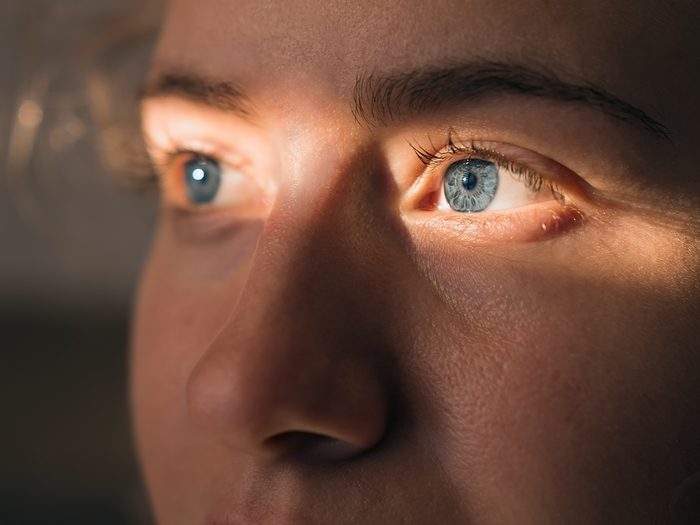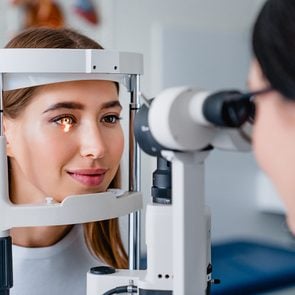Got a Twitch in Your Eye? Here’s What It Could Mean

The first step in solving this annoying condition is to determine the underlying cause.
Despite the fact that we commonly refer to it as a “twitching eye,” your eye isn’t actually moving at all—it’s that pesky eyelid. Eyelid twitching is pretty common and usually nothing to worry about, according to Dr. Ming Wang, PhD, Wang Vision 3D Cataract & LASIK Center. The condition of temporary or long-term eye twitching is called eyelid myokymia and it is the result of an involuntary misfiring of the neurons that stimulate your eyelid muscles.
What causes eye twitching?
There are several common reasons that your eyelids are twitching.
- Stress
- Excess caffeine (Here’s what your daily dose of caffeine does to your body.)
- Dehydration
- Fatigue
- Eye strain
- Alcohol
- Dry eye
- Nutrition problems
- Allergies
“Very rarely, eye twitching can be a sign of certain brain and nerve disorders,” says Dr. Hardik Soni, MD, Founder and Medical Director of Ethos Spa. “But then the twitch is accompanied by other signs and symptoms. Look for medical help if the twitching persists for a long time (one to three weeks), twitching occurs in other parts of the face, and the eyes are red, swollen, or have a discharge.”
How to stop your eye from twitching
The obvious answer is to address the potential causes of eye twitching to see if it helps. Get more sleep, cut back on caffeine, keep your eyes hydrated with drops, and do what you can to reduce stress. Some home remedies include drinking a five-ounce glass of tonic water or holding a cool—or warm—compress to your eyes. A more extreme approach involves Botox, says Dr. Wang, but he recommends against drastic measures since the condition generally resolves itself on its own.
Now that you know what it means when your eye is twitching, check out 20 symptoms you should never ignore.






